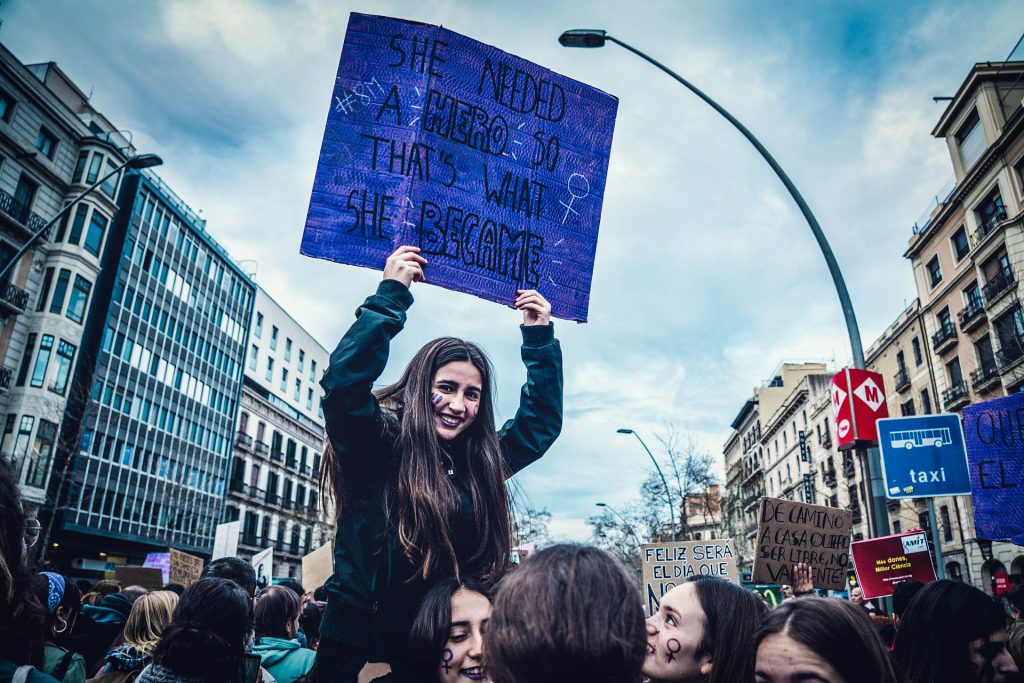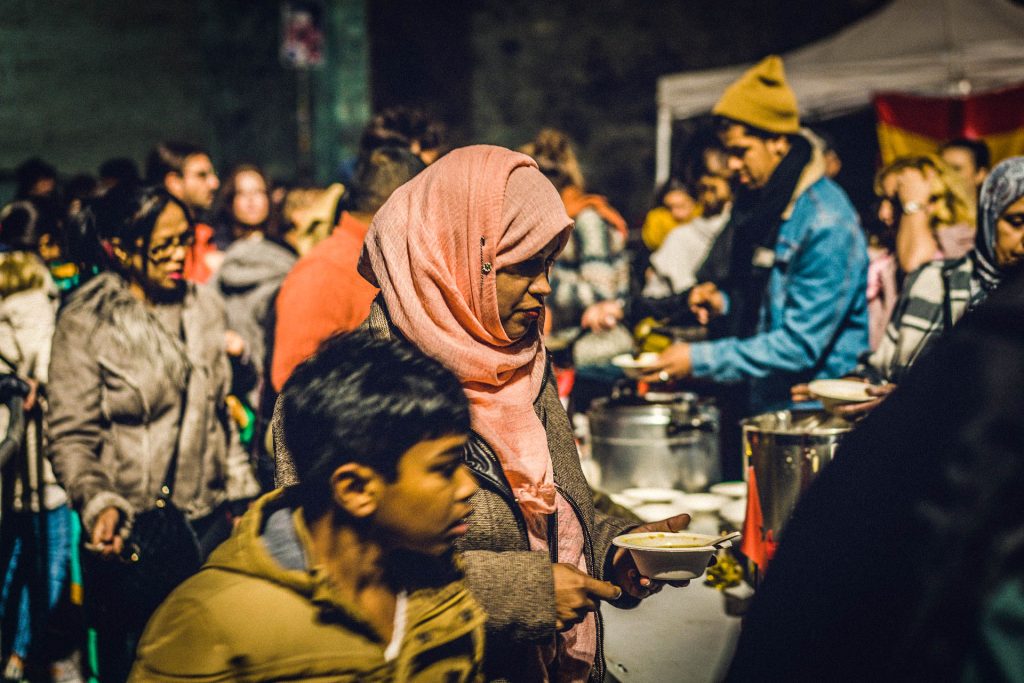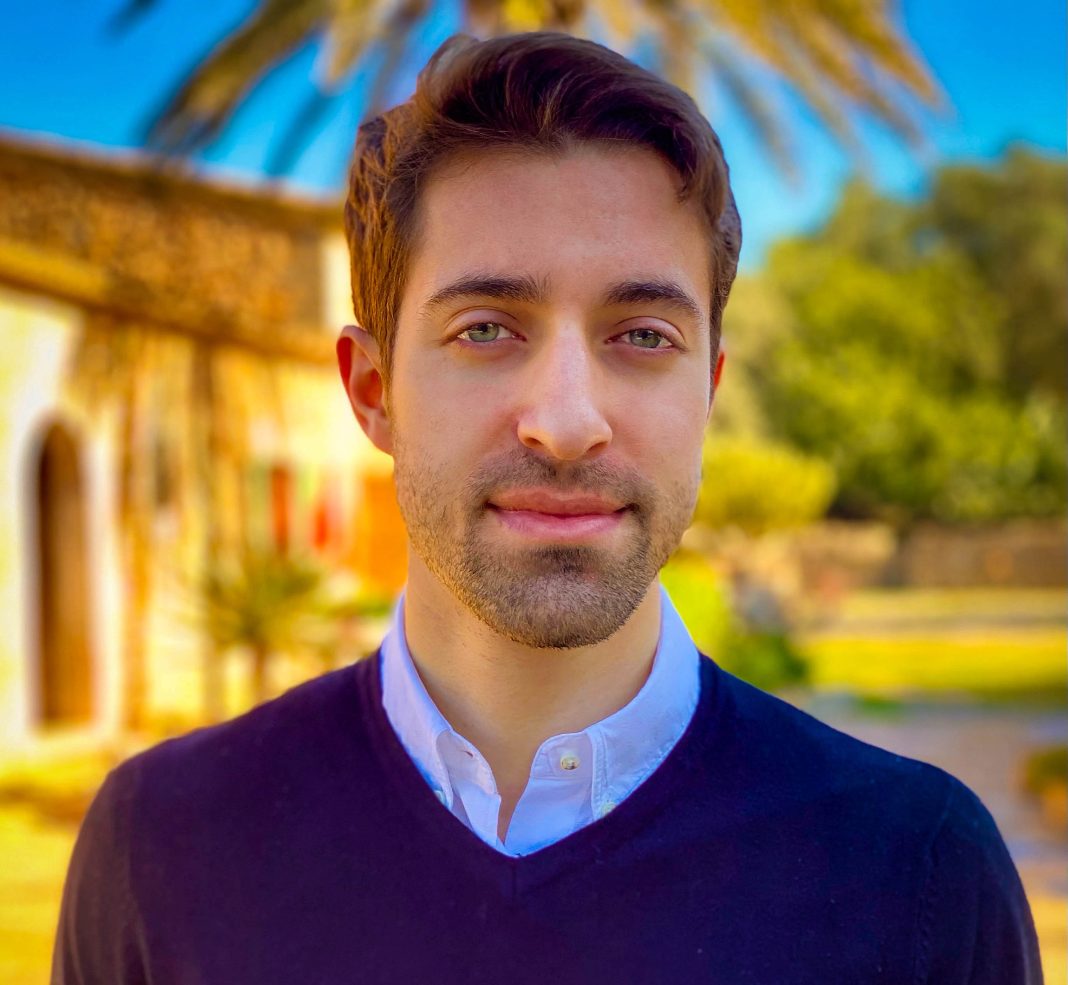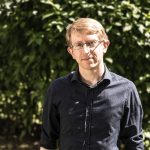What makes someone choose policymaking as a career path? In the case of polyglot Miquel Vidal-Bover, it comes from seeing a city’s pressing issues first-hand and knowing where his skills can be best applied.
Young Leader Miquel Vidal-Bover has an impressive resume. He has already conducted research into segregation in the Balkans for the Organisation for Security and Co-operation in Europe, held a position with the Council of Europe’s Congress of Local and Regional Authorities, and worked at the Regional Office for the Arab States for UN Women. Most recently, this CityChanger joined the Organisation for Economic Co-operation and Development (OECD) as a Junior Policy Analyst, continuing his path of enacting genuine change through policy analysis and recommendation at a sub-national level.
This must seem a universe away from the childhood he spent in a tiny rural island village on Spain’s Majorca. As a teenager, the relaxed pace of life ignited Miquel’s thirst for travel, which sparked a fascination with urbanism. It was all so enticing: “The amenities, the amount of people that you get, the economic dynamism that cities have. Economic, cultural, political.”
A personal interest in foreign languages led our CityChanger to pursue a degree in translation and consequently study in a plethora of European cities, absorbing new tongues as he went. That’s also when he saw room for change: “I started to see things that weren’t quite right, that weren’t quite working in the cities I was in.”
So, Miquel changed tack. With social sciences in his sights, he picked up three master’s degrees in Political Science, European Studies, and Economic Geography. The latter this Young Leader deems his specialisation and a pathway to making cities “more inclusive, less segregated”. And that’s what he got into policy to do.
Catalyst for Change
“I had never seen anybody homeless in my life before I moved to Barcelona.”
For an influential young CItyChanger, seeing this social injustice in the Catalan capital had a big impact. “This is one of the issues I think cities need to be thinking about.”
The city administration is now talking about expanding social housing as a way to combat rough sleeping, but Miquel was immediately hands-on when he arrived. He learnt from local associations the options homeless people had and set out to inform them, including options for subsidies, shelters, and how to reach out when they don’t feel safe.
The issue, Miquel says, is not just the lack of housing. “This is also to do with skills. It’s also to do with mobility. Cities are networks very much interlinked in all they do.” A lack of access holds some people back, while those who benefit can help close that gap. We need to bring them together.
Even so, Miquel doesn’t consider himself an activist in the traditional sense. He rather prefers to address the connected phenomena with systemic reform.
Why Policy?
What makes someone choose a career in policy? Miquel simply believes: “You have to find your place.”
For Ada Colau, this was pushing against the system. Barcelona’s residents were facing mass eviction due to struggling to pay mortgages during the 2008 financial crisis. In 2009, she formed the Platform for People Affected by Mortgages (PAH) to protect residents’ right to housing. She became a figurehead, Miquel recalls apolitically, and she went on to being elected the city’s first female mayor. Twice.

“You need to know where you’re going to be most useful but know that everybody is needed.”
Speaking of his own experience, Miquel says “it’s something that developed organically”. The realisation of how diverse society is had a major influence. That calls for representation.
Of homelessness, he says by way of example, “without the homeless, you’re not going to address it, because you won’t understand their problems”.
“The most important thing is to listen to everybody.”
This can only be done through participation, by bringing them on board. Plus, any other stakeholders, because a city is an interwoven fabric of actors and processes: businesses, activists, housing associations, neighbourhood organisations. “And of course, policymakers” – the technical personnel and political representation who can implement structural change. This, Miquel states, adds “the legitimacy of the process”.
This CityChanger’s work at street level brings a much-needed awareness of the city’s issues, but his studies, research, and technical abilities are what Miquel felt could make a difference. Sometimes the skills we have originate from the most unlikely of beginnings.
The Language of a City
Miquel grew up bilingual, in a Spanish and Catalan environment. He also speaks French, English, Czech, and has “some notions of Chinese”. Does language affect the way we view a city?
“I would say that if you ask any economist, they will initially probably say no. But there’s more to it than just economic activities.”
Culture and interpersonal exchange are important, this Young Leader adds. Informal institutions act on a city: “The networks, the sense of belonging that basically glues everybody together in pursuit of objectives that benefit us all”.
However, Miquel has observed how attitudes towards cities change from country to country. Solutions “are not necessarily culturally aligned” because we don’t all share a common history, for example.
In a borderless Europe, language can still impose boundaries. “That’s my experience. When I moved to Prague for a year, I could see that there was a massive difference in terms of integration in the city, if you spoke the language or not.” That can impact majorly on participation and representation. Especially in a city like Barcelona where newcomers often need to get their heads around two languages.
Back to Prague: even though locals profit from a massive tourist industry, “they also feel they’re being exploited”, which triggers a backlash. Classic NIMBYism.
But Miquel did learn the language and it changed his interactions “abruptly and for the better”. He got a job on the basis of speaking Czech alone.
“The perspectives you get from that is that integration of people who come to cities is important. If they don’t speak the language, they should be given the opportunity to learn it.”
It’s one reason why Barcelona, although not where Miquel grew up, feels like home. “If a city is welcoming to others, they can gain a lot culturally, even politically, and also economically, so it’s essential. Very much.”

Communication is Key
The step from linguistics to social sciences isn’t a natural one. At first, Miquel felt at a disadvantage compared to colleagues with backgrounds in law and political science. Within time, his perspective shifted. “The experience of translation has given me a great asset, which is communication, and the subtleties of communication.” It underpinned Miquel’s aptitude for intercultural sensitivity, diplomacy, and empathy: all important in understanding “how to communicate with different people effectively” at a local and international level.
Technical skills are also important in the policy environment. In a world where political parties want to craft public voices, it is data-driven processes and navigation of statistical software, so this Young Leader claims, that are important to critically analysing the evidence.
Walking the streets of London, Miquel noticed a mismatch in diversity. He saw much more segregation between various neighbourhoods than officials claimed, and this seemed to correlate with ethnicity.
“It is not only a matter of aggregated data from a city that tells you we have ‘so many’ ethnicities. Yeah, but where are they located? And what job do they do? How much do they earn? There’s no equality in that sense.” Like many pressing urban issues, truly understanding diversity, he reminds us, “is problematic” but essential to creating policy to unpick this inequality.
That’s why Miquel has been working on his technical skills for the past two years. In fact, he says, you never stop learning and improving: “You build them all the time”.
Advice, Inequality, and Intersectionality
Having said that, while facts are important, voices shouldn’t be ignored.
“Listen before you speak.”
That’s some of the best advice Miquel has been given. “You need to make a concerted effort with everybody. Listen to everybody equally. Listen attentively, actively, and empathetically. Then act.”
As for his own advice for other policymakers-to-be, Miquel stresses how important it is to not give up on your decisions just because you’re young or seemingly inexperienced. Others can often be dismissive because of this, but in this Young Leader’s experience, everyone’s proposals can be just as good, and their inquiries just as valid, researched, and impactful.
Systemic challenges of intersectionality can add to the obstacles of youth. Having worked for UN Women, Miquel is all too aware how half the world’s population faces an extra uphill struggle to make their viewpoint heard simply because of their gender. “When I say don’t give up, it comes with those consequences,” he clarifies soberly. “It needs to be taken into consideration; you will face opposition at some point, and you need to be able to defend yourself communicatively to advance your views or combine them with those of others.”

Think Local
So, what does this Young Leader hope for the city of the future? Well, the COVID-19 pandemic has given us the chance to rethink the social urban structure, he replies.
Prominently, Miquel rallies behind Anne Hidalgo’s 15-minute city concept. Like the mayor of Paris, this Young Leader imagines a future where services are local and accessible. Now, he says, is the time to push for it. Experiences in dealing with the virus have already paved the way for new policies on services, mobility, and climate change.
“There are very exciting changes coming up. It’s great to be an urbanist these days.”
Policymaking in a Nutshell
At first glance, it may not seem the most exciting field, but the people behind policy shape our cities and our lives. These can work well… or not so well. As Miquel Vidal-Bover shows, if we stop to listen, consider the diverse facets of society, and let evidence rather than speculation and personal political gain inform our decisions, we may yet form a connected, local, and fair city that’s prepared for what the future has in store.


